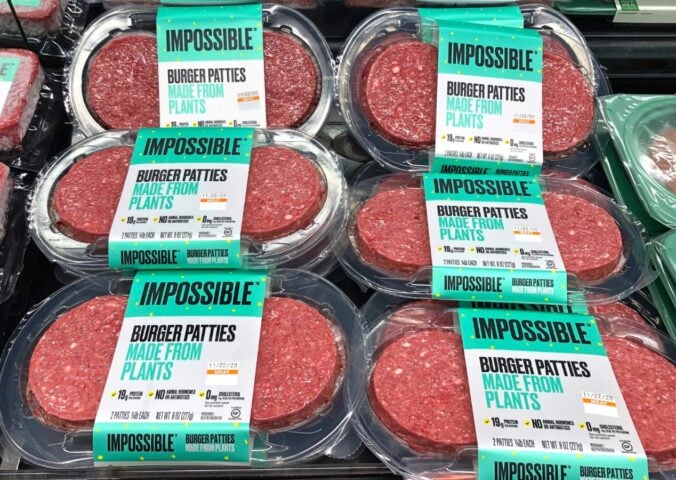Amid the current inflation spike, some UK schools are taking drastic measures to provide nutritious meals to children.
Per Supply Management, some schools have begun growing their own vegetables to supplement pared-back catering contracts. Others are reducing the number of meat dishes on their menus and switching to local suppliers for all ingredients.
Meat reduction in schools comes as one-third of UK shoppers are also dropping animal protein, due to increasing costs.
What is driving schools to grow their own vegetables?
Growing vegetables offers access to healthy whole foods, and there’s also the added benefit of the enhanced cognitive development that comes from gardening. But schools switching to this method are motivated by a number of problematic factors.
School meal provisions have been impacted by issues like the Russian invasion of Ukraine, general commodity price rises, labor shortages, and energy price hikes.
“School caterers have been warning of a growing crisis for years and now, predictably, it has come to a head,” Rob Percival, head of food policy at food charity the Soil Association said in a statement.
He added: “The government’s commitment to an additional seven pence per infant meal is welcome, but when caterers have faced years of underfunding on top of the current levels of inflation, this is wholly inadequate.”
A Soil Association survey revealed that 55.3 percent of schools had been unable to renegotiate their catering contracts. It comes as a result of spiraling costs.
For context, key ingredients, such as wheat flour and palm oil have increased by 72.3 percent and 49.4 percent respectively.
How are food standards at risk?
Despite some schools looking to grow their own produce, there is a fear that increased reliance on processed foods will be resurrected.
The Soil Association survey found that almost half (46.8 percent) of schools were concerned about the future health benefits of provided meals. It also revealed that 12.8 percent have already begun cutting back on previous nutritional standards.
In 2005, celebrity chef Jamie Oliver launched his Feed Me better campaign. It lobbied the government to improve school meal standards and take heavily processed items off the menu. Nutritionally balanced and freshly cooked dishes were requested instead.
Oliver’s petition garnered almost 272,000 signatures. The government duly pledged £280 million to overhaul the school meals program in England.
A lack of tangible improvements has seen Oliver continue his campaigning, now under the “Food Revolution” banner. He aims to halve childhood obesity in the UK by 2030.
Failing the nutritional needs of children
Despite widespread support for healthier school meals, recent research conducted by Imperial College London found that ultra-processed foods account for almost two-thirds (64 percent) of all menu items.
In the Soil Association survey, 6.4 percent of schools admitted to having already increased their use of such foods.
Many contain cheap cuts of meat and pose an increased risk of developing type two diabetes and heart disease.
“Ultra-processed foods are often cheap, readily available, and heavily marketed – often as healthy options,” Dr. Jennie Parnham, lead author of the study said in a statement. “But these foods are also generally higher in salt, fat, sugar, and other additives, and linked with a range of poor health outcomes, so it’s important that people are aware of the health risks of children consuming them in high levels at school.”
She continued: “As food prices continue to rise in the UK and globally, accessing affordable, healthy food will become more challenging for many more people. School meals should offer children from all backgrounds access to a healthy and minimally processed meal, yet they are currently failing to meet their potential.”
What can be done?
In a bid to improve children’s health, plant-based school meal initiatives are springing up globally.
Earlier this year, New York mayor Eric Adams launched “Vegan Fridays.” The program delivers only plant-based meals, once a week, to K-12 students to help quell childhood obesity rates.
Similarly, Mexico has been steadily increasing the number of vegan school meals served, through collaboration with Mercy For Animals.





